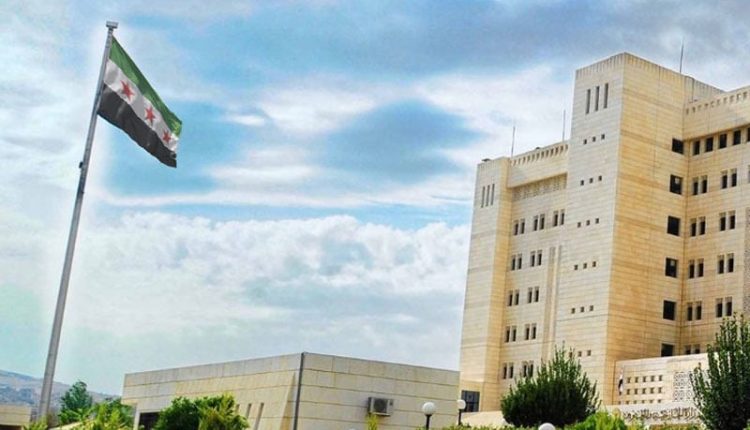Syria Downplays U.S. Reclassification of Its UN Mission as ‘Technical’
By Kardo Roj
DAMASCUS, Syria (North Press) – Syria’s Foreign Ministry issued its first official response on Monday to the recent decision by the United States to alter the legal status of the Syrian diplomatic mission at the United Nations in New York, describing the change as a “technical and administrative” measure.
The statement comes a day after the U.S. government formally informed the Syrian mission that its status had been downgraded to that of a “government not recognized by the United States.” The move carries diplomatic and symbolic significance, reflecting Washington’s continued refusal to legitimize Damascus following years of political and military strife.
According to the diplomatic notice, the U.S. reclassified the visas of Syrian mission personnel from G1—reserved for diplomats representing recognized governments—to G3, a category issued to foreign nationals working with international organizations but whose governments are not acknowledged by the host country.
In a statement published on its official website, the Syrian Foreign Ministry asserted that the adjustment does not signify a shift in the U.S. position on the “new Syrian government,” referring implicitly to the political transition underway in the wake of internal shifts and territorial realignments.
“The measure concerning the legal status of the Syrian mission in New York is a procedural matter and does not reflect any change in the international standing of the Syrian state,” the ministry noted, maintaining a position of continuity in its external diplomatic posture.
The statement reaffirmed Syria’s commitment to maintaining international dialogue and working through multilateral platforms, adding that Damascus is reviewing the status of all its foreign missions as part of broader diplomatic recalibrations.
The U.S. decision marks a notable, if largely symbolic, escalation in the diplomatic isolation of the Damascus government, which has long been subject to sanctions and international pressure over its conduct during the Syrian conflict.
However, the reclassification also coincides with growing attention to the emergence of alternative governance structures across Syria, particularly in the northeast, where the Autonomous Administration of North and East Syria (AANES) continues to operate with significant grassroots support and military backing from the Syrian Democratic Forces (SDF).
The AANES has pursued diplomatic engagement with international bodies, including limited outreach to the UN and Western governments, emphasizing its commitment to human rights, gender equality, and regional security—principles that differentiate it from both Damascus and Turkey-backed factions.
As Syria’s political landscape continues to shift, the reclassification of its UN mission underscores persistent questions about legitimacy, representation, and the path forward.
Whether this change leads to broader diplomatic reconfigurations or remains a contained bureaucratic adjustment, it signals the international community’s ongoing recalibration in addressing the Syrian file—a process in which actors like AANES and the SDF are increasingly asserting their presence.

